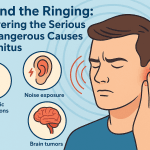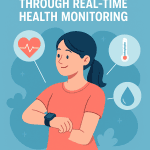This article is for informational purposes only and is not a substitute for professional medical advice.
The Connection Between Sleep and Mental Health
Have you ever noticed how a poor night’s sleep can leave you feeling irritable or anxious the next day? It’s not just your imagination. Research shows that sleep plays a crucial role in regulating mood and mental health. In fact, inadequate sleep can contribute to the development of mental health disorders such as anxiety and depression. A study published in PubMed found that individuals with sleep disturbances are at a higher risk for mood disorders, highlighting the intricate relationship between sleep and emotional well-being.
Understanding Sleep Hygiene
So, what exactly is sleep hygiene? Sleep hygiene refers to a set of practices and habits that are conducive to sleeping well on a regular basis. Good sleep hygiene can help you fall asleep faster, stay asleep longer, and wake up feeling refreshed. It encompasses various aspects, including your sleep environment, bedtime routines, and daily habits. But why is it so vital? The mechanisms behind sleep hygiene involve complex interactions between your circadian rhythms, hormonal balance, and stress response systems.
Why Sleep Hygiene Matters
When you prioritize sleep hygiene, you’re not just enhancing your sleep quality; you’re also supporting your overall mental health and well-being. According to the National Institutes of Health (NIH), poor sleep can lead to cognitive impairments, emotional dysregulation, and increased stress levels. Conversely, good sleep hygiene can foster resilience against stress and improve emotional stability. It’s essential to understand that sleep is not merely a passive state; it’s an active process that influences your brain’s ability to regulate emotions and manage stress effectively.
Key Components of Sleep Hygiene
Improving your sleep hygiene can be easier than you think. Here are some essential components to consider:
1. Create a Sleep-Inducing Environment
Your bedroom should be a sanctuary for sleep. Keep it cool, dark, and quiet. Consider using blackout curtains to block out light and earplugs or white noise machines to drown out disruptive sounds. The Centers for Disease Control and Prevention (CDC) recommends maintaining a comfortable sleep environment to enhance sleep quality. Additionally, consider the bedding you use; a comfortable mattress and pillows can significantly impact your ability to fall asleep and stay asleep.
2. Establish a Consistent Sleep Schedule
Going to bed and waking up at the same time every day helps regulate your body’s internal clock. Try to stick to this schedule even on weekends. This consistency can improve your sleep quality and make it easier to fall asleep at night. A study in Sleep Medicine Reviews indicates that irregular sleep patterns can disrupt circadian rhythms, leading to poorer mental health outcomes.
3. Limit Screen Time Before Bed
The blue light emitted by screens can interfere with your body’s production of melatonin, the hormone responsible for sleep. Aim to turn off electronic devices at least an hour before bedtime. Instead, consider reading a book or practicing relaxation techniques. If you must use screens, consider blue light filters or glasses that block blue light to mitigate its effects.
4. Watch Your Diet
What you eat and drink can significantly impact your sleep. Avoid large meals, caffeine, and alcohol close to bedtime. Instead, opt for light snacks if you’re hungry. Foods rich in magnesium and tryptophan, such as bananas and nuts, can promote better sleep. Additionally, staying hydrated throughout the day is crucial, but try to limit fluid intake close to bedtime to avoid nighttime awakenings.
5. Incorporate Relaxation Techniques
Practicing relaxation techniques can help calm your mind and prepare your body for sleep. Consider incorporating activities such as meditation, deep breathing exercises, or gentle yoga into your nightly routine. These practices can reduce stress and anxiety, making it easier to drift off to sleep. A meta-analysis published in Health Psychology Review found that mindfulness and relaxation techniques significantly improve sleep quality and reduce symptoms of insomnia.
The Impact of Sleep Disorders on Mental Health
It’s important to recognize that sleep disorders can significantly affect mental health. Conditions like insomnia, sleep apnea, and restless leg syndrome can lead to chronic sleep deprivation, which in turn can exacerbate anxiety and depression. Understanding the pathophysiology of these disorders helps to clarify their impact on mental health.
Insomnia
Insomnia is characterized by difficulty falling asleep, staying asleep, or waking up too early. According to the American Psychological Association (APA), insomnia can lead to mood disturbances and cognitive impairments, making it essential to address sleep hygiene if you struggle with this condition. The mechanisms behind insomnia often involve hyperarousal of the central nervous system, which can be triggered by stress, anxiety, or even certain medications.
Sleep Apnea
Sleep apnea is a serious disorder that causes breathing to repeatedly stop and start during sleep. This can lead to fragmented sleep and daytime fatigue. Research indicates that untreated sleep apnea can increase the risk of developing mood disorders, including depression and anxiety. The pathophysiology involves intermittent hypoxia (lack of oxygen), which can lead to increased sympathetic nervous system activity and inflammation, further impacting mental health.
Strategies for Improving Sleep Hygiene
If you’re ready to improve your sleep hygiene, consider implementing the following strategies:
1. Keep a Sleep Diary
Tracking your sleep patterns can help you identify habits that may be affecting your sleep. Record when you go to bed, when you wake up, and how you feel in the morning. This information can provide valuable insights into your sleep habits. You may also want to note factors like stress levels, physical activity, and dietary choices to see how they correlate with your sleep quality.
2. Seek Professional Help
If you continue to struggle with sleep despite improving your sleep hygiene, it may be time to consult a healthcare professional. They can help identify any underlying sleep disorders and recommend appropriate treatments. Cognitive Behavioral Therapy for Insomnia (CBT-I) is a highly effective treatment that addresses the thoughts and behaviors contributing to sleep difficulties.
3. Educate Yourself
Understanding the importance of sleep hygiene can motivate you to prioritize your sleep. Consider reading books, articles, or reputable online resources about sleep and mental health. Knowledge empowers you to make informed decisions about your sleep practices and overall well-being.
Case Vignette
Consider Sarah, a 32-year-old marketing executive who has been experiencing chronic stress at work. Over the past few months, she noticed that her sleep quality has deteriorated; she struggles to fall asleep and often wakes up feeling exhausted. After keeping a sleep diary, Sarah realized that her late-night screen time and irregular sleep schedule were contributing to her insomnia. By implementing a consistent sleep routine, reducing screen exposure, and practicing relaxation techniques, Sarah began to see improvements in her sleep quality and, subsequently, her mood and productivity at work.
Myth-Busters
- Myth: Napping during the day is always bad for sleep.
Fact: Short naps can be beneficial, especially if you’re sleep-deprived. Aim for 20-30 minutes to avoid disrupting your nighttime sleep. - Myth: Alcohol helps you sleep better.
Fact: While alcohol may help you fall asleep initially, it disrupts sleep cycles and can lead to poorer sleep quality. - Myth: You can catch up on sleep over the weekend.
Fact: While sleeping in may help alleviate some sleep debt, it doesn’t fully compensate for chronic sleep deprivation.
Conclusion
In conclusion, sleep hygiene is a vital component of mental health and well-being. By creating a conducive sleep environment, establishing a consistent sleep schedule, and incorporating relaxation techniques, you can improve your sleep quality and, in turn, enhance your mental health. Remember, good sleep is not a luxury; it’s a necessity for a healthy mind and body. Prioritizing sleep hygiene can lead to significant improvements in your emotional resilience and overall quality of life.
Key Takeaways
- Sleep hygiene practices can significantly improve sleep quality and mental health.
- A consistent sleep schedule helps regulate your body’s internal clock.
- Creating a sleep-friendly environment is essential for restful sleep.
- Relaxation techniques can reduce stress and promote better sleep.
- Addressing sleep disorders is crucial for maintaining mental well-being.
Key Takeaways
- Sleep hygiene practices can significantly improve sleep quality and mental health.
- A consistent sleep schedule helps regulate your body’s internal clock.
- Creating a sleep-friendly environment is essential for restful sleep.
- Relaxation techniques can reduce stress and promote better sleep.
- Addressing sleep disorders is crucial for maintaining mental well-being.
References
- National Institutes of Health (NIH) – Sleep and Mental Health
- Centers for Disease Control and Prevention (CDC) – Sleep Hygiene
- American Psychological Association (APA) – Insomnia and Mental Health
- World Health Organization (WHO) – Mental Health and Sleep
- UpToDate – Sleep Disorders and Mental Health








Post a comment